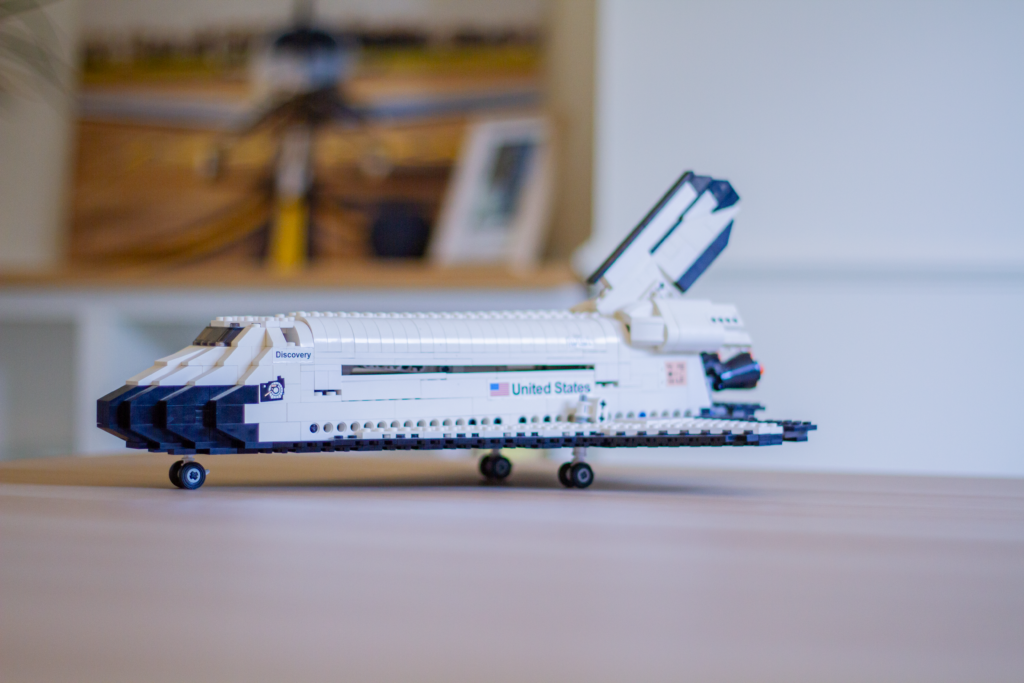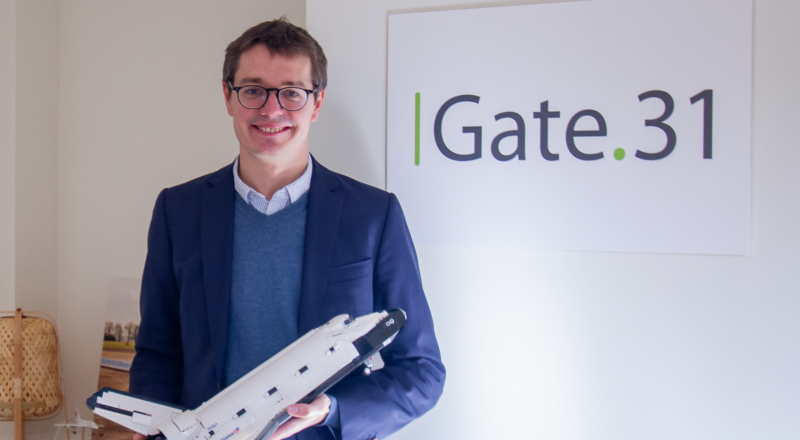On the occasion of the World Engineering Day, Gate.31 met Pierre Schrooyen, Senior Research Engineer working for an international educational and scientific organization.
« The line of research I’ve been working on – for several years now – concerns very high-speed, very high-temperature flows. This type of flow is encountered, for example, during atmospheric re-entry of Space vehicles, whether manned spacecraft or end-of-life satellites.
My work is mainly numerical, i.e. we develop codes that enable us to reproduce this type of phenomenon. We also use these tools to analyze, design and improve vehicles or satellites. Most of the projects I’m currently working on are for the European Space Agency.”
Modeling the re-entry of space debris into the atmosphere
Belgian research centers such as Cenaero and the Von Karman Institute are working on the problem of Space debris by modeling the phenomena that occur when a satellite re-enters the atmosphere.
Given that water covers more than 70% of the Earth’s surface, the probability that some debris will fall into the water is obviously significant. Despite this and given the fact that some satellite components are difficult to disintegrate[1], we are helping satellite manufacturers to « design for demise », i.e. to design a satellite so that it will completely disintegrate upon re-entry into the Earth’s atmosphere.
« We have been sending objects into space for more than 60 years. More and more of these objects are reaching the end of their lives, breaking up and threatening other satellites in orbit and people on Earth. When we design them, we must make sure that these are completely destroyed at the end of their life ».
Pierre Schrooyen
What motivates you in your daily work?
The developments I work on are exciting and intellectually stimulating. What’s more, I learn something new every day, and two days are ever quite alike. The Space sector is full of passionate people, and working with them is especially motivating!
« See an aircraft flying or a satellite moving through space and feel that you’ve contributed (even if only in a small way) is like a child’s dream come true… ».
Pierre Schrooyen

What new challenges will engineer face in the coming years?
The engineering profession will undergo several changes in the coming years, due in part to major technological developments. In the field of research (which is my field), I think that the main challenge will be to ensure the smart integration of new tools linked, for example, to artificial intelligence. This will be a major challenge for future generations!
How do you see the role of the engineer in the face of environmental and sustainability issues and the accelerating emergence of new technologies? In general, and in the space sector in particular?
During my studies I learned not to be a « techno-optimist / techno-utopist », i.e. not to think that technology will solve everything. You must realize that there is a limit to the contribution and impact of science and technology. We also need to be aware of the time it takes for certain technologies to mature and become usable.
In general, we need to be aware and responsible. For example, when we send satellites into Space, they must have an end-of-life plan and not pollute an orbit. I’m clearly in favor of a conscious and respectful use of Space.
I’m not saying that Space should be demonized. Far from it! Let’s not forget that major phenomena such as global warming have been discovered from Space and that many of the applications used on Earth (geolocation, navigation, study of meteorological phenomena, etc.) only work thanks to the satellites orbiting above our heads…
Can you name one of your proudest professional accomplishments?
That’s difficult because I’ve had a lot of great moments in my « short » career. I say « short » career because I’m still young (he smiles), but I must admit that the moment I’m most proud of is and remains my thesis(*) defense, because it’s a long-term job (4 years) and it’s my thesis that is the basis of my professional activity.
If you had to give a message to a young person who wants to study engineering, what would it be?
I’d say it’s not a bad choice (he smiles). Whatever field they’re interested in, an engineering degree will give them the background and tools they need to go ahead in that field. Don’t be fooled into thinking that you’re entering a niche when you start this type of study. A young person who studies engineering can very well work in the biomedical, aerospace, energy, and other sectors. For someone who is curious, it’s an excellent choice!
[1] Examples include large, massive parts, tanks often coated with materials similar to those used to protect capsules, and optical instruments.
(*) Numerical simulation of aerothermal flows through ablative TPS

